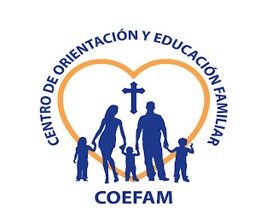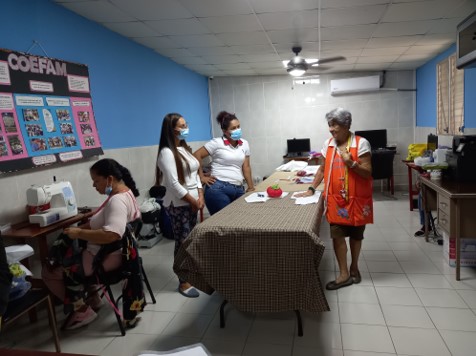This year’s Mercy Day celebrations center on the theme of “Walking with Mercy.” While the concept recalls the description of Sisters of Mercy as “Walking Sisters” that is tied to the very beginning of the Mercy Community, it is also deeply connected to the ministries in which the sisters are engaged today, walking with others in a spirit of encuentro. Today we offer perspectives from two sisters on walking with migrants; one from south of the United States border, and one from north of the border.
By Sister Angelina Mitre
Migration is a global phenomenon that has changed the lives of human beings in many ways. Countries that receive migrants have gained a sense that the world is in motion, as a diversity of people from different parts of the world transit through them. For those who migrate, that movement often is an expression of the struggle for survival.
As Sisters of Mercy, we are called to walk alongside migrants, offering a helping hand to alleviate their suffering and reaching out to them with a loving and merciful heart.
The latest monthly monitoring reports from the United Nations High Commissioner for Refugees (UNHCR) and the UN’s International Organization for Migration (IOM) state that people often leave their country of origin for economic reasons, including lack of job opportunities, and because of overall insecurity or threats and attacks against them and their families.
In Panama, there are two types of migration: people in transit to the United States, and those who remain in the country. Those in passing through see it as a place for rest, food and medical care before continuing on to the United States. According to statistics from Panama’s National Migration Service, as of March 2023, the main nationalities crossing the Darien are Venezuelans (30,250), Haitians (23,640), Ecuadorians (14,327); people from China (3,855) and India (2,543); and the children of Haitian parents born in Chile (2,499) and Brazil (2,072).
These migrants arrive in Colombia and then embark on an arduous five to eight day journey, on foot and by boat, to reach Darien. Along the way, they face difficult terrain and threats to their lives from drug traffickers and thieves. They are mistreated, robbed, raped and extorted by criminal gangs. Although human remains have been reported by those making it to Darien, there is no way of accurately knowing how many die in the jungle, as there is no record of how many leave Colombia.
Panama is the only country in the region that uses biometrics to identify migrants. They are provided with medical services, food and temporary shelter. However, the increasing number of migrants has exceeded the country’s resources. According to estimates, 400,000 migrants will arrive this year. Very few stay in Panama.
In 2023, over 60,000 minors have passed through the Darien. Among them, 219 have lost their parents during the journey, 86 were not accompanied by any family members, and 45 did not carry any documents. There are children accompanied by adults, but there is no way to be certain they are parents or relatives.
It is estimated that around 200,000 migrants living in Panama entered through regular channels, but their temporary visas have expired. They mostly come from Nicaragua via Costa Rica and from Colombia and Venezuela. Those from other countries fly in as tourists with the intention of staying in Panama, but do not have the money to follow through with the migration processes once their visa expires.

The Sisters of Mercy and Associates accompany migrants, mostly women with children, through the Center for Family Guidance and Education (COEFAM). We offer prayers, humanitarian assistance through vouchers to purchase food and medicine, as well as training for entrepreneurship with small seed capital. We also provide psychological support and spiritual and educational guidance in family matters. We give $300.00 scholarships to 22 primary school children to help them buy their school supplies. We also provide a sewing course to train migrant women to generate economic resources, as well as a technology course.
One woman we helped fled repression in Nicaragua with an adult daughter and a younger one after her husband and a brother were killed. She approached COEFAM, participated in the Entrepreneurship Program, received small seed capital, and started her business producing and selling bread. Currently, she covers her food, rent and services with this income, and even sends some money to her relatives in Nicaragua.
Another woman came from Venezuela because she did not make enough money to buy food. She was a teacher there but couldn’t work as one in Panama because she lacked legal documents. She participated in COEFAM’s sewing course and learned to sew and repair clothing. With her business, she can now contribute to household expenses.
The government offers financial aid to Panamanian children, but not to foreign children. COEFAM tries to fill the gap by offering a family scholarship, which requires children to have good grades and follow the rules, and requires parents to attend COEFAM workshops to support their children.



Sisters in Panama also belong to the Red CLAMOR (Ecclesiastical Network of the Caribbean and Latin America for Migration, Displacement, Refugees and Human Trafficking), which is affiliated with the Latin American Episcopal Council, which coordinates the pastoral work of Catholic Church organizations in the regions aimed at welcoming, protecting, promoting and integrating migrants, displaced persons, refugees and victims of trafficking, from a spirituality of communion. As part of Red CLAMOR, we sometimes help out with funds, food and donated clothing.
Migrants symbolize the man fallen on the road, assaulted and wounded by thieves, whom the Samaritan helped. They reveal an unequal, unjust world where the selfishness of some leads to the death, hunger and suffering of many. They call us to solidarity and to the denunciation of social and political systems that are rich in resources but produce misery.
By Sister Patricia Pora
At this time, Maine, like many other areas, is struggling with an unprecedented number of immigrants seeking asylum. A great number of them are from the Congo and Angola but also from Central and South America. I have focused on the Spanish-speakers since it is the group that is the most hidden – and perhaps the least understood.
My motivation and passion come from accompanying the people who have arrived in the United States and hearing their stories – as well as having lived through some of the experiences in my own life. The word “accompaniment” is mostly what I am about. It means providing emotional and spiritual support to people in need as well as walking in their shoes. To accompany is to recognize their human dignity and experiences, facilitating integration but not taking away their identity. It is being a “companion on the journey,” not walking for them but with them. It means recognizing and encouraging their strengths in their new environment as well as noting my own lack of understanding of our differing realities. It is learning from each other, not from a position of power but of experience.
Some of the immigrants’ realities are similar but not necessarily the same. No country or group can be lumped in with another, even if they speak the same language and may have similar experiences.
A good number of people I accompany are escaping extreme poverty because multinational corporations have taken over land and natural resources.
Another cause for immigration is the environmental degradation through monocultures owned by foreign entities. An international agricultural business comes along, and with the support of an often-corrupt government buys up land for their own profit; the people living there receive little to nothing and no longer have land for their own subsistence farming.
Extractivism, or mining by foreign corporations, also harms the environment and can force people off their land. Huge open pit mines destroy agricultural communities and pollute the local water with mercury and other contaminants. Extractivism is an economic and political model of development that commodifies nature and prioritizes profit over human rights. It is rooted in colonialism and patriarchal violence.
Another major cause of migration is violence. Many of the immigrants are escaping the violence they encounter in their countries. We need to look deeper into the cause of that violence, not only in their countries of origin but in our own as well. I sincerely believe that much of this violence is caused by disenfranchisement, abuse, bullying or a sense of invisibility that creates a desire to be recognized in some way, often through “power.” Violence comes from the political powers of the immigrants’ countries of origin, the police, the military or gang members. Much of our financial assistance that goes to “help” these countries is being used by the governments to support their military and police forces that are often connected to gangs.
There is also the violence done to women. Because of the historical modeling and the effects of the disenfranchisement of men, women are often subjected to violence. The political model gives men power.
Another concern that influences immigration is racism. Many that come from the Central American Triangle, especially Guatemala and Honduras and now Ecuador, are indigenous people who suffer from the effects of neocolonialism, much as our own indigenous people have. Educational opportunities are rare. Many can’t read or write, so job skills are limited.
There is another word for this meeting with others and that is the Spanish word “encuentro,” which in English is “encounter.” In Spanish, it has many different meanings. Encuentro is a very personal invitation for each of us to reach into our own spirituality and to encounter the Sacred in the other. We are invited to cross boundaries we have set and to allow ourselves to encounter the other person, accepting the opportunity of a graced experience.
The process can be slow but stay with it. Many have been through too much for instant trust. We can’t put the roof on the house before the supports, no attic before the basement. Our culture is too used to the quick, the superficial, the immediate.
What are some suggestions to help with accompaniment?
- Smile
- Welcome
- Become familiar with the root causes of immigration by consulting reliable sources of information that are non-partisan
- Advocate to our legislators
- Study history (there are many good books!)
- Find friends on the journey to walk with you
- Get to know more of your own family’s history of migration